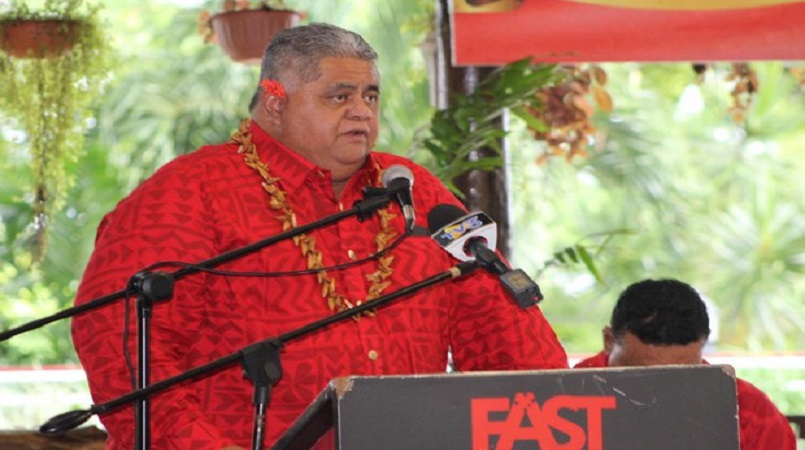
At a slickly choreographed event in Hong Kong on April 26, the island nation of Samoa was introduced to a vision of its future: cryptocurrency and stock trading epicenter of the South Pacific.
Chinese officials and businessmen made speeches – their resumes beamed onto a giant screen at the luxury St. Regis hotel – as they celebrated the official launch of the Samoa Digital Asset Exchange, Samoa Stock Exchange and Oceania Blockchain Special Economic Zone.
A sprinkling of Westerners with finance industry backgrounds were introduced as advisers. Also revealed were a chief technology officer, chairmen, a chief operating officer and bright, generically abstract logos for each of the companies.
Mulipola Anarosa Ale Molioo, Samoa’s finance minister, spoke and posed for photos. The Samoan coat of arms, representing state authority and meant only for official use, was plastered and projected throughout the venue.
But little more than a month later, after photographs from the Chinese event circulated online and caused disbelief in Samoa, Prime Minister Fiame Naomi Mata’afa was on a damage-control footing.
The Samoan government had not given any endorsement or approval for the ventures, which were only proposals, said a statement from her office.
The cryptocurrency episode was not the only controversy over poor governance and lack of transparency that Fiame was battling.
Days later, she scuttled the first direct flights between China and Samoa after criticism of cabinet minister Laauli Leuatea Schmidt’s involvement in Samoa Royal Tours.
In conjunction with a Hong Kong travel company, it controlled tours in Samoa for the influx of Chinese visitors that began in late May. Samoa Royal Tours was registered as a company in Samoa in April and its shareholder was one of Laauli’s daughters, Rosary Leilua.
BenarNews has found that Laauli, one of Samoa’s most powerful politicians, is also linked to the effort to make Samoa a South Pacific crypto-finance center and that the cryptocurrency and Chinese tourism ventures overlap in other ways. Chinese businessmen involved in the effort to bring more Chinese tourists to Samoa also hold key positions in the stock exchange and cryptocurrency ventures.
BenarNews and affiliated news organization Radio Free Asia reviewed Samoa Business Registry and other corporate records, information in Chinese-language media reports and financial databases and photos from the Hong Kong launch.
“I believe I have no obligation to reply to your request,” Laauli said in response to a list of his connections to the exchanges compiled by BenarNews. “You can report whatever you wish for the issues you requested.”
Samoa’s economy is small and its financial system underdeveloped.
Cryptocurrency and stock exchange ventures could have reputational and financial risks for the country and might also run counter to the government’s objective of making the financial system more accessible. Less than half of people have bank accounts and onerous requirements for loan collateral inhibits lending to businesses, according to the Asian Development Bank.
Home to about 200,000 people, Samoa also has a Chinese debt burden that is second only to Tonga among Pacific island nations when measured as a proportion of total national debt.
Fiame canceled a Chinese port project in 2021, to avoid becoming further indebted to China’s government. Through aid, infrastructure and lending, Beijing has become a significant force in the Pacific region over the past several decades.
